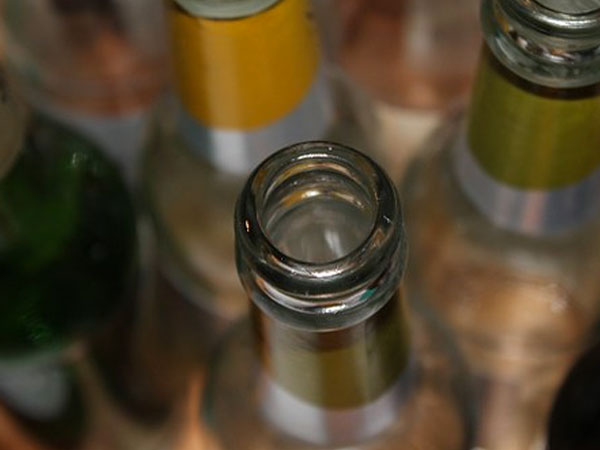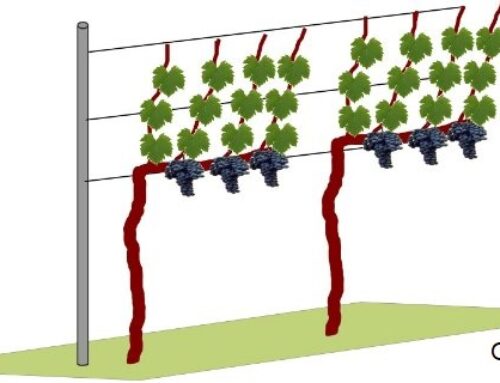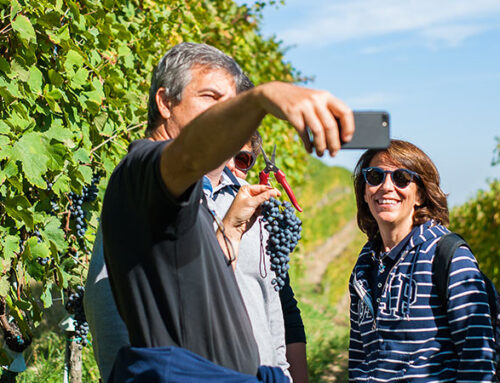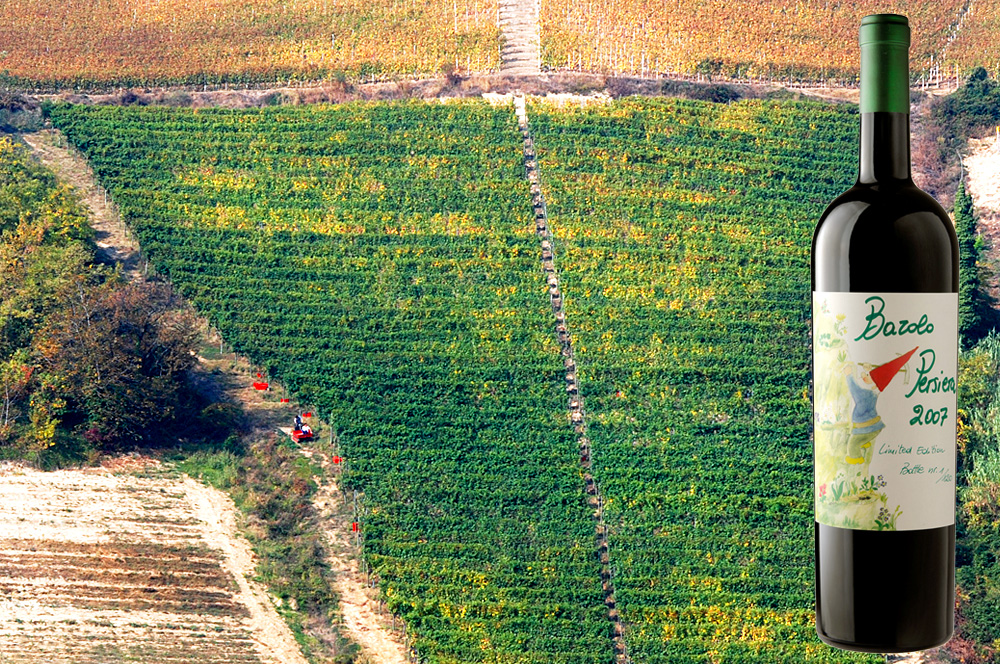Discover what makes for sustainable winemaking in the following interview with Langhe wine producer Sara Vezza
Over the last few months there has been much talk of sustainability, in particular as a solution to the climate change provoked by humans that is making our planet an ever more inhospitable place.
Various world environmental agencies confirm that we are in the midst of a climate emergency. This warning must be heeded so that we can leave a better world for our children.
Sustainable brands
Many well-known brands have recently taken up the cause of sustainability with ambitious projects to combat the global warming emergency and defend human rights through ethical production.

How do you think companies can achieve sustainability? What are practical initiatives to help the cause?
The guiding principle of sustainability is sustainable growth, a combination of interacting social, economic and environmental aspects.
In the case of corporate institutions these are made up of the subsets of employees, finance and emission-conscious production to reduce environmental impact, to augment customer experience and cement ties between the territory and the company.
Many wine-producing estates have defined their mission according to these precepts and have achieved distinction by making authenticity a central goal.
Sustainability in the winegrowing sector
Sustainability in the winegrowing sector is derived from a green philosophy. In practical terms this consists of applying specific criteria to protect both environment and consumer through production methods with low environmental impact, along with producing natural and organic wines.
Many estates however, desire to go beyond the narrowly-defined aspects related to wine production and apply the same concept of sustainability to a wider range of issues, including human factors.

A sustainable estate in every sense
Here to speak with us is Sara Vezza, a Langhe wine producer who has for more than twelve years chosen an ecological route for her winegrowing estate, building her own philosophy on sustainable methods.

“Being a farmer implies a great responsibility”, says this winemaker, who has always been committed to safeguarding the environment.
This commitment comes from a real attachment to the region and for Sara, eco-sustainability begins in the vineyard and continues in the cellar.
“This is our heritage, the heritage we will pass on to our children.” How does this idea of yours translate into tangible actions to respect the land? What are your choices in terms of method?
“Respect for the land begins with the choices made in the vineyard, so to begin with, we have decided to reduce the use of chemical products.”
And then, we are members of the Tergeo Italia project which certifies technological and management solutions with regard to sustainability in the winemaking sector.
For example–contour ploughing of vineyards, restricting the depth of ploughing before planting vines and planting grass cover between the rows–all reduce soil erosion from water run off.
These choices culminated in 2014 in our decision to convert to organic certification.”

(Josetta Saffirio Vineyards)
Energy management and renewable resources
The methods used in the vineyards and in winemaking are only some of the factors in the sustainability of the estate.
Companies can also engage in energy conservation to combat climate change thereby reducing CO2 and greenhouse gas emissions.
Last year the EU drew up a series of objectives and measures to fight climate change; this long-term strategy aims to reduce greenhouse gas emissions by 40% by 2030.
“How do you deal with your estate’s CO2 emissions? Have you adopted sustainable measures with regards to energy use?”
“In 2010 we installed 20 kW solar panels; these provide twice as much energy as we need for the cellar.
As a result we have been able to reduce CO2 emissions by 13,000 kg and oil consumption by 6,500 kg annually.
To further reduce our environmental footprint we are also creating a park, where indigenous species of plants and animals will have free reign.
Increasing the area of managed forest on the estate is our tangible commitment to add more oxygen to the environment, to offset CO2 emissions.”
“Sustainable design also means that each of the estate’s buildings fits harmoniously into the natural environment.
Have you used sustainable design in the construction of your cellar?”
“Yes–the cellar has been designed to fit into the rural landscape and to reduce heat loss to the outside.
We have used natural cork to insulate and have built on two levels to reduce surface area and thus impact.”

Recycling
Sustainability features in waste management and in repurposing and recycling.
The final stages of production incorporate sustainable packaging, referred to as intelligent packaging, which calls for food and drink packing to be as recyclable as possible and is itself often already made of recycled materials.
“Do your methods take into account the environmental impact of glass bottles? How do you dispose of waste and packaging?”
“In line with our green philosophy, we have always been committed to assiduous recycling, starting with the choice of materials used.
We have always favoured ecological materials, up to and including the waste we produce.
Our objective is to reduce packaging, so we use lighter, 90%-recycled dark glass, shorter corks and less cardboard.
Our packaging comes from suppliers who are aligned with our ecological philosophy and thus we support the circular economy.
In addition, we have taken the disposal of cellar waste into consideration and are members of the ‘Clean Cellar’ consortium, a body which collects and manages refuse such as oil, batteries and plant protection packaging.”

Social sustainability in our own local context
Social sustainability means giving central importance to each individual involved in the collective whole in every way: at work, and beyond, in both the social and cultural contexts.
It is the personal involvement of individuals in tangible actions that results in greater well-being and benefits for themselves.
“How important is the human factor in your business?”
“I attach a great deal of importance to the organisation of events related to the world of wine; women often possess strong communications skills and this is in fact a quality that all members of Women in Wine–an association I belong to–share.
On the estate I organise events aimed at drawing people in, not just wine enthusiasts but anyone who likes company and shared experience.
For example, the park we are building also has cultural and didactic objectives, with school visits planned to introduce children to winegrowing culture.
I imagine the estate as a natural museum open to all, to discover the secrets of winemaking, to get to know the region and its traditions and to recount our own history.
To this end I organise themed days, tastings and dinners in the vineyard along with the opportunity to adopt a row of vines and make one’s own wine.
I also participate in and organise conferences.”
This is all possible as a result of my coworkers, who are really a winning team.
Together we collaborate fully in the planning of work projects, future development of the estate and the exchange of ideas.”

(Team building by Josetta Saffirio)
“What does awareness of sustainability in your own region mean to you?”
“This is the other aspect of my philosophy of sustainability–the importance of improving the local area through various activities and art forms.
I am very attached to this land and have a strong sense of belonging that also comes from the people who live here and who are the real soul of the territory.
Consequently we sponsor local activities such as the football team, the Barolo boys and the jazz event, Monforteinjazz which takes place each year in Monforte d’Alba.
I love this combination of wine and art.”














Scrivi un commento
Devi accedere, per commentare.